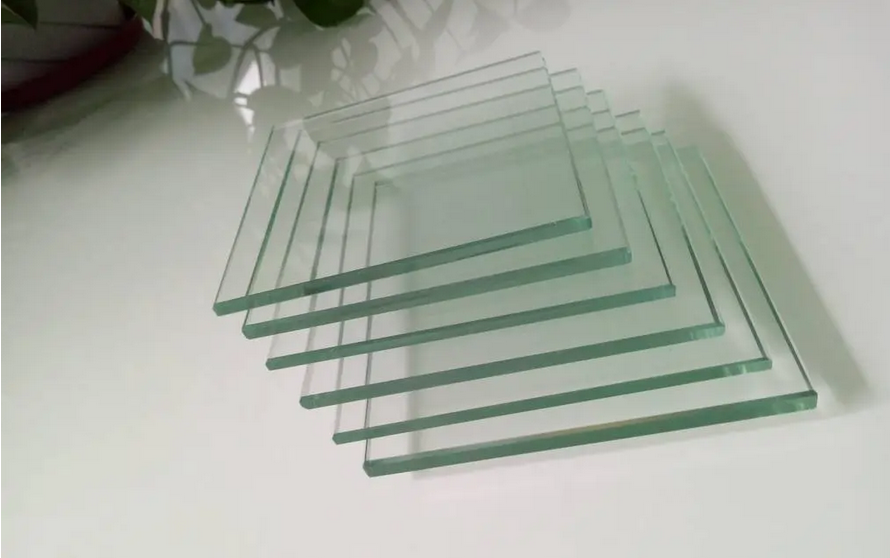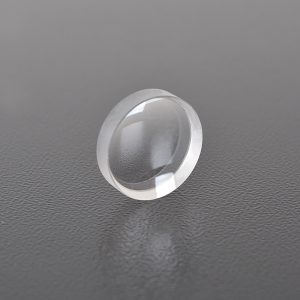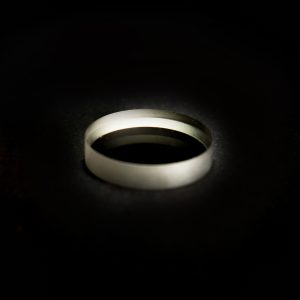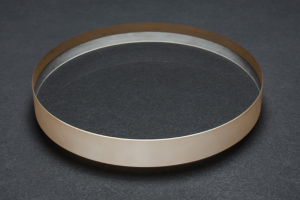
Float glass is widely used, including colored glass, float silver mirror, float glass / automobile windshield level, float glass / various deep processing levels, float glass / scanner level, float glass / coating level and float glass / mirror making level.
Among them, ultra white float glass has a wide range of uses and broad market prospects. It is mainly used in high-grade buildings, high-grade glass processing and solar photoelectric curtain walls, as well as high-grade glass furniture, decorative glass, crystal imitation products, lamp glass, precision electronics industry, special buildings, etc.
Product advantages
It is in the tin bath and the glass floats on the surface of the liquid tin. Therefore, this kind of glass has good flatness and no water ripple.
Used for making mirrors and automotive glass. No hair, no shape, this is one of its major advantages.
The second is the ore quartz sand selected for float glass, with good raw materials. The produced glass is pure and transparent. Bright and colorless. No glass, bubbles, etc.
Third, the structure is compact, heavy and smooth. The same thickness per square meter is greater than that of the flat plate. It is easy to cut and not easy to be damaged.
Production process
The forming process of float glass production is completed in a tin bath filled with protective gas (N2 and H2). Molten glass flows continuously from the tank kiln and floats on the surface of liquid tin with high relative density. Under the action of gravity and surface tension, the liquid glass is spread and flattened on the liquid tin level to form the upper and lower surfaces. After leveling, hardening and cooling, it is led to the transition roller table. The roller of the roller table rotates to pull the glass belt out of the tin bath and enter the annealing kiln. After annealing and cutting, float glass products are obtained. Compared with other forming methods, float method has the following advantages: it is suitable for manufacturing high-quality flat glass with high efficiency, such as no wave reinforcement, uniform thickness, flat upper and lower surfaces and parallel to each other; The scale of the production line is not limited by the forming method, and the energy consumption per unit product is low; High utilization rate of finished products; It is easy to manage scientifically and realize mechanization and automation of the whole line, with high labor productivity; The continuous operation cycle can be up to several years, which is conducive to stable production; It can provide suitable conditions for on-line production of some new varieties, such as electro float reflective glass, sprayed film glass during annealing, cold end surface treatment, etc.
Single piece float glass has poor sound insulation performance. Its performance is in accordance with GB / t8485-2002 classification and test methods of air sound insulation performance of building external windows and gbj75-1984 code for measurement of building sound insulation, and with reference to the identification of sound insulation performance indicators in international standards iso140 and iso717. The weighted sound insulation loss RW is used to measure the sound insulation performance indicators, and its unit is db; Another sound insulation performance index STC can be used as a reference index.
Product features
For float glass, due to the good uniformity of thickness, the transparency of its products is also relatively strong, because it is relatively smooth after tin surface treatment. Under the action of surface tension, it forms a kind of glass with relatively neat surface, good flatness and strong optical performance. This kind of float glass has particularly good decorative characteristics, better transparency, brightness, purity and bright indoor light, At the same time, it is also the best preferred material for building doors and windows and natural daylighting materials. It is one of the most widely used building materials. It can be said that in terms of various types of building glass, this float glass is the most widely used and is one of the most important raw materials for glass deep processing. Ultra white float glass is mainly characterized by the best transparency and purity.
Product differentiation
What is the difference between ordinary flat glass and float glass.
A: Ordinary flat glass and float glass are flat glass. Only the production technology and quality are different.
Ordinary flat glass is a transparent and colorless flat glass produced by using quartz sandstone powder, silica sand, potassium fossil, soda ash, Glauber’s salt and other raw materials in a certain proportion, melting at high temperature in the furnace, and vertical lead-up method, flat drawing method and calendering method. According to the appearance quality, ordinary flat glass is divided into three categories: excellent products, first-class products and qualified products. According to the nominal thickness, it is divided into 12 specifications: 2, 3, 4, 5, 6, 8, 10, 12, 15, 19, 22 and 25mm. (see flat glass gb11614-2009)
B: Float glass is a transparent and colorless flat glass made of sea sand, quartz sandstone powder, soda ash, dolomite and other raw materials in a certain proportion, which is melted at high temperature in the furnace, the liquid glass flows continuously from the tank furnace to and floats on the metal surface, spread into a glass belt with uniform thickness and polished by fire, separated from the liquid metal after cooling and hardening, and then annealed and cut. The glass surface is particularly flat and smooth, the thickness is very uniform, and the optical distortion is very small. Float glass is divided into three categories according to appearance quality: excellent products, first-class products and qualified products. According to the thickness, it is divided into nine types: 3, 4, 5, 6, 8, 10, 12, 15 and 19mm.
C: The appearance quality grade of ordinary flat glass is determined according to the number of defects such as wave bars, bubbles, scratches, sand particles, bumps, lines and so on. The appearance quality grade of float glass is judged according to the number of defects such as optical deformation, bubbles, inclusions, scratches, lines, fog spots and so on.
D: Ordinary glass, emerald green, fragile, low transparency, easy to age and deform under rain and exposure.
Float glass, transparent float glass is made of glass paste that enters the tin bath through the control gate, floats on the surface of molten tin due to gravity and its own surface tension, and then enters the tin cold bath to make both sides of the glass smooth and uniform and the ripple disappears. Dark green, smooth surface without ripple, good perspective and certain toughness.
E: The production process of float glass is different from that of ordinary glass. The advantage is that the surface is hard, smooth and flat. The color of float glass is different from that of ordinary glass from the side. It turns white. After reflection, the object is not distorted, but generally there is no water grain deformation.
Mould proof
Glass mildew has always been an industrial problem. Glass mildew (i.e. anti alkali) has a chemical reaction to change the properties of the glass surface. Under the irradiation of sunlight, there are rainbow, mildew spots, watermark, mimeograph, paper grain and other phenomena on the surface.
Moldy glass often occurs in the process of production, storage and transportation. The surface of moldy glass products will lose luster and transparency, showing rainbow, white spots or patch phenomenon (not easy to separate), which seriously affects the quality of float glass products, leads to a big discount in the image of glass enterprises among downstream customers, and affects the price of finished products. Especially when the current glass sales market continues to be depressed, the important measure for enterprises to maintain strong competition is to further improve the glass quality, minimize the scrap rate of glass caused by mildew and reduce the production cost.
Therefore, it is particularly important to choose a good anti mildew product. At present, there are three main types of glass mildew protection: mold proof powder, paper separator and mold proof liquid. Among the three kinds of products, mildew proof powder is the best. It is a nano polymer material with the characteristics of environmental protection, high efficiency and easy cleaning. Among them, imported mould proof powder has attracted the attention of glass enterprises for its high-quality materials and strict production requirements, but its high price makes glass enterprises daunted, and the serious increase of cost can not meet the current demand of cost saving advocated by enterprises. In recent years, the rise of domestic mold proof powder is making up for this deficiency. In terms of price, it only accounts for 1 / 3 of imported powder. In terms of quality, some products of the company have reached or even higher than the international level, which fully meets the production needs of domestic glass enterprises. With the increasing added value of glass products, the use of mold proof products has attracted more and more attention. In response to the development of glass for the high-end glass market, a new generation of “coconut shell” anti mildew products have emerged, which has greatly improved the anti mildew isolation effect and cleaning performance of glass. Although the paper barrier is simple to operate, has excellent anti mildew effect and can be recycled, it is gradually replaced by powder products because of its high cost, long storage time and easy to produce paper printing. At present, the anti mildew liquid products are still not mature enough, the market utilization rate is not high, and it is easy to cause unclean cleaning for a long time.
Tin defect
The function of float glass tin bath is to form glass with a certain width and thickness through the external force of main drive and edge drawing machine under a certain temperature system. After forming and cooling, it is sent to the annealing kiln through the transition roller table.
The tin bath in the float process uses liquid metal tin as the floating medium and the mixture of nitrogen and hydrogen as the shielding gas. In the relatively closed environment of tin bath, there are many complex chemical reactions. Some products of these chemical reactions will bring many glass defects and affect the product quality.
The environment and structural characteristics of float glass tin bath determine that tin defects are inevitable, which can only be effectively controlled but not eliminated in actual production.
Hanzhong Borisun Optics manufacturer
Specializing in the processing and production of optical components, The base materials include various optical glass, fused quartz, calcium fluoride (CaF2), zinc selenide (ZnSe), germanium (GE), silicon (SI), sapphire, metal and other materials. And provide antireflective film, high reflection film, spectroscopic film, metal film and other optical coatings.
Focus on the research and development of optical sensing instruments and detection technology services
Focus on providing one-stop optical technology solutions
If you are interested, please contact us



